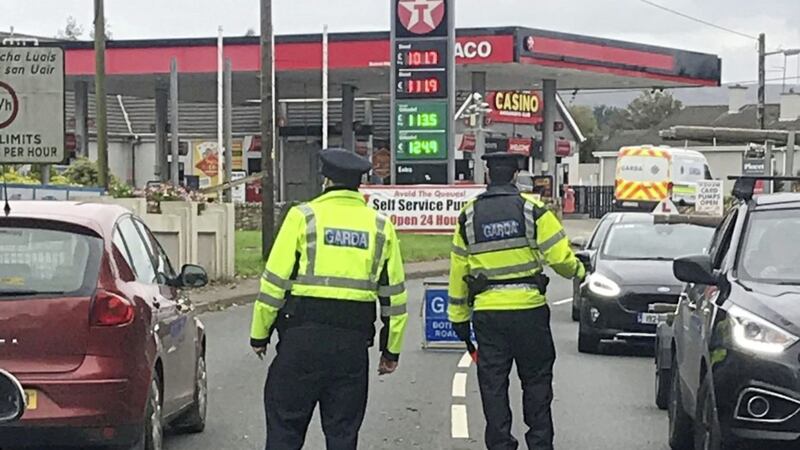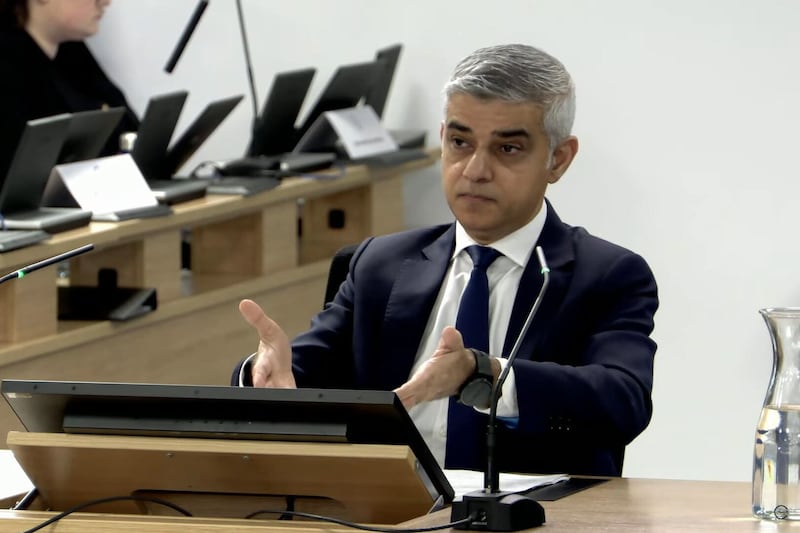Getting away on holidays looks like it could be the latest victim of the failure to implement the Memorandum of Understanding on Covid-19 between the Stormont Executive and the Dublin government.
Back in March 2020 at the early stages of the pandemic, ministers met and declared: “Everything possible will be done in co-ordination and cooperation between the Irish government and the Northern Ireland Executive and with the active involvement of the health administrations in both jurisdictions to tackle the outbreak. Protection of the lives and welfare of everyone on the island is paramount, and no effort will be spared in that regard”.
Within a few weeks, co-ordination had been thrown out the window when the Stormont Executive found itself blindsided by Leo Varadkar’s announcement of the implementation of strict lockdown measures.
Things didn’t improve over the following year, with Dublin ignoring the statements from Michelle O’Neill and Arlene Foster in March that they believed any vaccine surpluses in the north should be shared across the island. Instead of pushing an open door, government TDs trotted out the line that Ireland had to act as part of the EU27 in securing vaccines and entirely ignored the fact that Denmark had gone outside EU procurement. Nor did they even consider asking how the north has put in place a programme where one third of adults are fully vaccinated and people in their 20s are currently receiving their first doses.
Earlier this week, health minister Robin Swann MLA revealed that he had not been able to get a meeting with his counterpart Stephen Donnelly, even though he had requested same two weeks ago. Having embarrassed Donnelly into it, that meeting is to take place before the end of the week.
It looks like Michéal Martin’s government is on course to miss yet another opportunity for positive collaboration with the announcement of the implementation of the EU Digital Covid Certificate AKA the vaccine passport.
On Friday last week, Thomas Byrne TD, Minister of State for European Affairs, appeared on Today with Claire Byrne on RTÉ Radio 1 to answer questions about the scheme which will provide people with a digital record of their Covid-19 vaccination status, previous illness and current Covid status, so as to facilitate safe international travel. Byrne was asked whether Irish passport holders in the north would be able to avail of these certificates in order to be able to travel.
He responded: “The details of that will remain to be worked out. I think in principle this would be for European citizens with European vaccination certificates within the EU. But there is scope for member States to recognise vaccinations that have been taken elsewhere…it’s certainly something we’d keep an interest in, insofar as we can.”
The waffly non-response would suggest the first time the Irish government actually considered the matter was when they were asked the question on air.
It’s likely that the disruption cause by the cyber attack on the Health Service Executive’s computer systems, which is now entering its third week, will have an impact on the roll-out of the vaccine passport scheme. The development of new health record systems will surely have to take a back seat to getting services such as radiology and urgent surgery back up and running.
Yet up the road, an online appointment booking platform, linked to a centralised register of vaccines administered, has been in operation since January. Why is Stephen Donnelly not just simply asking for the software and a sharing of expertise to get the system in place?
Pressure is mounting on the Dublin government from the tourism and aviation sectors to set out a clear path for the return of international travel, particularly since the date set for implementation of the Covid Passport scheme is July 1. But with statistics showing that less than 11 per cent of adults in the south are fully vaccinated, it seems unlikely that the National Public Health Emergency Team will recommend removing the ban on non-essential foreign travel in a hurry.
Given that 1.4 million passengers from the north travelled through Dublin airport in 2019, it makes financial sense for the Dublin government to ensure that the EU Digital Covid Certificate will apply to travellers from the north, who will be able to avail of international travel much more quickly. The aviation industry and Irish Air Line Pilots’ Association might do well to apply pressure in this regard.
The NHS app available in England will provide a digital vaccine record and in Scotland, a vaccination certificate can be requested from the health authorities. No firm plans for how this issue will be handled in Wales or the north are yet in place. Stormont should support the HSE in developing the vaccine passport system on the basis that citizens right across the island of Ireland can avail of it.
A sense of hope felt by many in the south that the end is in sight is tempered by an uncertainty over how long restrictions on travelling and on meeting up with friends and family at home will continue to remain in place. Pushing the open door at Stormont, for once, might help the Dublin government address that public uncertainty.








